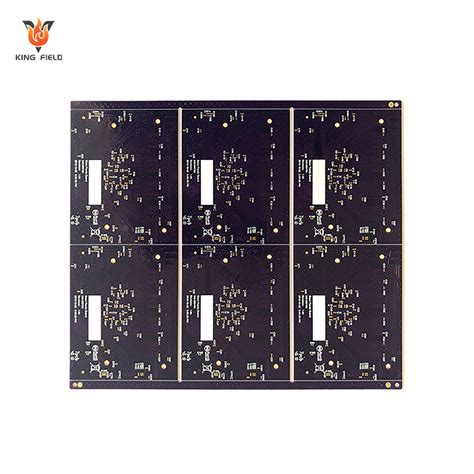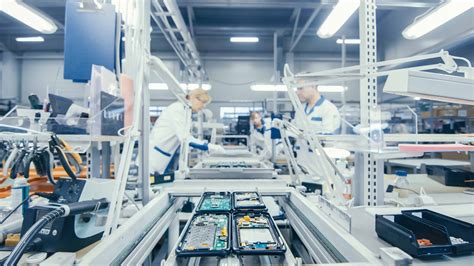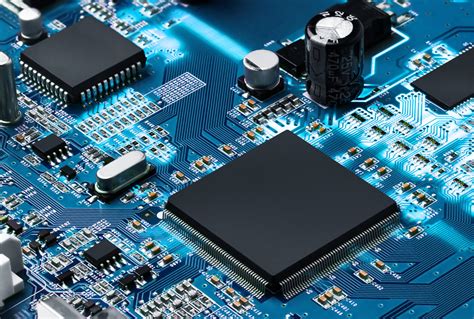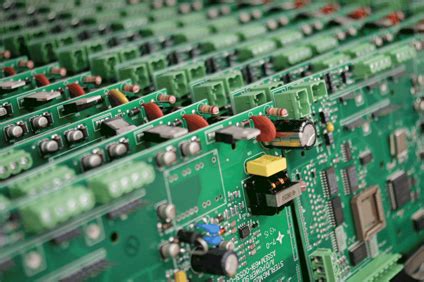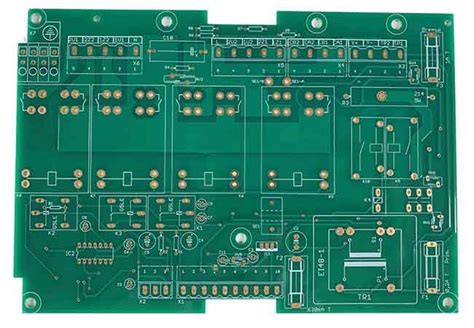Unlocking Innovation: The Power of Custom Circuit Board Assembly
Key Takeaways
Custom circuit board assembly, often referred to as pcb assembly, plays a crucial role in the technology landscape today. By embracing innovative pcba solutions, businesses are not only able to streamline their manufacturing processes but also enhance the overall performance of their products. Tailored pcb assembly services allow engineers and designers to create highly specific designs that cater to unique specifications and complexities of different industries. This adaptability positions companies to meet evolving market demands effectively, thus gaining a significant competitive edge. Furthermore, the collaboration between teams in the design and assembly phases fosters a culture of creativity and resourcefulness, unlocking opportunities for remarkable advancements in technology. As sectors evolve, the emphasis on customized solutions in pcba will likely continue to grow, highlighting the intrinsic value of innovation in meeting both current and future needs.
Introduction to Custom Circuit Board Assembly
In the ever-evolving landscape of technology, custom circuit board assembly (commonly referred to as PCBA) stands as a pillar of innovation. This process involves designing and manufacturing tailored circuit boards that cater specifically to unique project requirements. By leveraging PCB assembly techniques, companies can create bespoke solutions that enhance both functionality and performance, addressing the distinct challenges each industry faces.
The demand for precision in pcba is paramount as devices become increasingly sophisticated. Customized designs allow for optimized layouts, ensuring that connections are made efficiently and components are placed in a manner that maximizes performance while minimizing interference. This level of detail not only drives innovation but also leads to reduced costs over time by decreasing the likelihood of component failure.
Implementing an effective custom circuit board assembly process helps firms maintain a competitive edge in their respective fields. As industries continually evolve, so do the needs of their products. Tailored solutions in PCB design ensure that companies can swiftly adapt to changing market conditions and consumer demands. The flexibility inherent in custom assemblies empowers organizations to remain at the forefront of technology advancement.
| Key Benefits of Custom Circuit Board Assembly | Description |
|---|---|
| Tailored Solutions | Designs specifically suited for unique project needs |
| Enhanced Product Performance | Optimized layouts reducing interference and improving efficiency |
| Competitive Advantage | Ability to adapt quickly to market changes |
| Cost Efficiency | Reduced likelihood of component failure leads to lower long-term costs |
In summary, custom circuit board assembly not only fosters innovation but also aligns with overarching industry goals by providing robust, agile solutions that respond effectively to specific technological demands. As businesses continue to strive for excellence and differentiation, investing in a quality pcba process will undoubtedly serve as a catalyst for long-term success.
The Importance of Tailored Solutions in Technology
In today’s fast-paced technological landscape, the demand for custom circuit board assembly (often referred to as PCB assembly or PCBA) has become increasingly pivotal. Tailored solutions allow manufacturers to create circuit boards that meet specific performance requirements and unique industry standards. This customization not only enhances the efficiency of electronic products but also ensures reliability and longevity, which are crucial in sectors like telecommunications, automotive, and medical devices.
By incorporating innovative designs that cater to individual project needs, businesses can better address market demands and outpace competitors. For instance, a customized PCBA can integrate advanced features that standard circuit boards cannot offer, such as miniaturization or increased power management capabilities. This adaptability leads to a significant improvement in overall product performance, offering companies a strategic advantage.
“Investing in tailored solutions is not just about improving functionality; it’s about redefining what’s possible in technology.”
As industries continue to evolve, the ability to provide specific solutions in pcb assembly will play a crucial role in fostering innovation and driving sustainable growth. Embracing this forward-thinking approach enables organizations to not only meet but exceed the expectations of their clients while fulfilling essential industry requirements. Thus, pursuing custom circuit board assembly should be viewed as an investment in the future of technology rather than merely a production choice.
Enhancing Product Performance through Custom Designs
The integration of custom circuit board assembly (commonly referred to as PCBA) plays a pivotal role in enhancing product performance across various industries. By employing tailored designs, manufacturers can address specific requirements that off-the-shelf solutions often fail to meet. This level of customization allows for improved efficiency, reduced size, and optimized functionality in electronic devices. For example, adapting traces, layer counts, and component placements can lead to significant advancements in signal integrity and power management. Furthermore, the ability to utilize diverse materials and innovative manufacturing techniques ensures that these PCB assemblies not only meet functional demands but also adapt to unique environmental conditions, such as humidity or temperature fluctuations. As a result, businesses can experience enhanced reliability and longevity in their products. In competitive markets where innovation defines success, leveraging custom designs allows companies to stay ahead by offering exceptional quality and tailored solutions that resonate with consumer needs. This strategic approach not only enhances overall product performance but also positions manufacturers as leaders in their respective fields by demonstrating their commitment to meeting evolving industry demands through technological advancement.
Meeting Industry Demands: A Competitive Advantage
In today’s fast-paced technological landscape, custom circuit board assembly (pcb assembly) plays a pivotal role in addressing the unique requirements of various industries. Companies must stay agile and innovative to gain a competitive edge, and the pcba process provides precisely that. By leveraging tailored solutions, businesses can ensure that their products not only meet but exceed industry standards. This allows them to adapt rapidly to changing market needs, ensuring that they can remain relevant and successful. With each custom design, manufacturers can improve functionality and enhance the overall performance of their products, thereby fulfilling specific client expectations effectively. Furthermore, the ability to offer bespoke solutions strengthens customer relationships by demonstrating a commitment to quality and innovation. Overall, embracing custom circuit board assembly is not just about keeping pace with competitors; it is also about setting a new standard in technological excellence that fully meets diverse industry demands.
Case Studies: Success Stories in Custom Circuit Board Assembly
The realm of pcb assembly has been significantly influenced by companies that have embraced custom circuit board assembly solutions to propel their projects forward. One notable success story comes from the medical device industry, where a manufacturer developed a groundbreaking diagnostic tool. By partnering with a specialist in pcba, they were able to integrate complex functionalities into a remarkably compact design, ensuring reliable diagnostics while meeting stringent regulatory standards. This collaboration not only enhanced product performance but also reduced time to market, illustrating how tailored pcb assembly solutions can lead to substantial advancements in critical fields.
Another compelling case is found in the telecommunications sector, where a tech firm sought to improve connectivity solutions. They turned to custom pcb assembly services, enabling them to create innovative communication devices that outperformed existing models. The precision and adaptability offered by these custom designs allowed for enhanced signal processing capabilities and better overall product efficiency. As such, this case exemplifies how meeting unique industry demands through specialized pcba fosters competitiveness and drives innovation.
Such success stories highlight the transformative power of custom circuit board assembly in various sectors, proving that investing in tailored solutions not only addresses specific challenges but also delivers a vital edge in rapidly evolving markets.
Future Trends in Circuit Board Technology
As we look ahead, the landscape of pcb assembly will undoubtedly evolve, driven by rapid advancements in technology and increasing demand for efficiency. One notable trend is the integration of smart electronics, which enhances the functionality of devices while reducing the size and weight of pcba solutions. This miniaturization allows for greater creativity in product design, enabling industries to develop compact gadgets that deliver high performance without sacrificing quality. Furthermore, sustainability is rising as a focal point; manufacturers are now prioritizing eco-friendly materials and processes within custom circuit board assembly. This reflects an industry-wide shift towards reduced environmental impact, ensuring that innovations not only meet performance needs but also contribute positively to our planet’s health. Real-time data analytics and automation are also becoming influential, facilitating more accurate projections and streamlining the production process. These trends signify a transition towards more agile and responsive pcba frameworks that can adapt to the ever-changing market demands while fostering innovation across various sectors. As we embrace these upcoming trends in circuit board technology, businesses can leverage these advancements for a competitive edge, ultimately delivering enhanced solutions tailored to meet specific needs effectively.
The Role of Innovation in Custom Assembly Processes
In the rapidly evolving landscape of technology, innovation plays a pivotal role in enhancing the processes of custom circuit board assembly, commonly referred to as pcb assembly. The integration of cutting-edge techniques and tools in pcba ensures that businesses can meet their specific needs while pushing the boundaries of what is possible. One significant aspect of this innovation is the use of advanced software and automation technologies that streamline production, increase efficiency, and minimize errors. These developments not only optimize the fabrication process but also allow for greater flexibility in design adjustments, catering to unique project requirements.
Moreover, by adopting innovative methodologies, companies can significantly enhance product performance. Custom circuit board assembly enables engineers to create specific designs that maximize functionality without compromising on reliability. This tailored approach does not just address contemporary demands but also anticipates future challenges within diverse industries. Consequently, businesses gain a competitive edge, effectively positioning themselves as leaders in their respective markets.
Furthermore, newer materials such as high-frequency substrates and flexible circuits are emerging due to innovative research and development efforts. These advancements are instrumental in producing lightweight yet durable pcba solutions that meet stringent performance criteria across various applications. As innovation continues to drive progress within custom assembly processes, they become not just a method for manufacturing but an essential component for fostering creativity and embracing opportunity in the technology sector.
Conclusion
In conclusion, the significance of custom circuit board assembly (or PCB assembly) in modern technology cannot be overstated. These tailored solutions not only drive innovation but also facilitate enhanced product performance that meets the specific demands of various industries. As competition intensifies, businesses increasingly turn to PCBA to gain a distinct advantage, enabling them to respond swiftly to market changes and consumer needs. The integration of advanced materials and cutting-edge technologies in custom assembly processes further reaffirms their role in pushing boundaries and achieving excellence. With future trends pointing toward even more personalized and efficient designs, the journey towards innovation remains both exciting and essential. Thus, adopting a forward-thinking approach to custom circuit board assembly will undoubtedly play a vital role in shaping the future landscape of technology.
FAQs
What is custom circuit board assembly (PCBA)?
Custom circuit board assembly, often referred to as PCB assembly, involves the precise placement and soldering of electronic components onto a printed circuit board tailored to specific performance requirements. This process enables the creation of devices that meet unique functional needs.
Why is custom PCB assembly important in modern technology?
Custom PCBA addresses the diverse and evolving demands of technology by providing tailored solutions that enhance product performance while ensuring compliance with industry standards. It allows manufacturers to innovate freely and maintain a competitive edge in the market.
How does custom PCBA improve product performance?
By utilizing customized designs, manufacturers can optimize their products for specialized applications. This includes selecting specific materials, designing layouts for efficient signal integrity, and ensuring durability under varying conditions, ultimately translating to superior performance.
What are the competitive advantages of tailored PCB assembly solutions?
Tailored PCB assembly solutions enable companies to differentiate their products through unique features or improved efficiency. They can respond quickly to market changes and customer needs, fostering innovation and long-term viability in a fast-paced environment.

